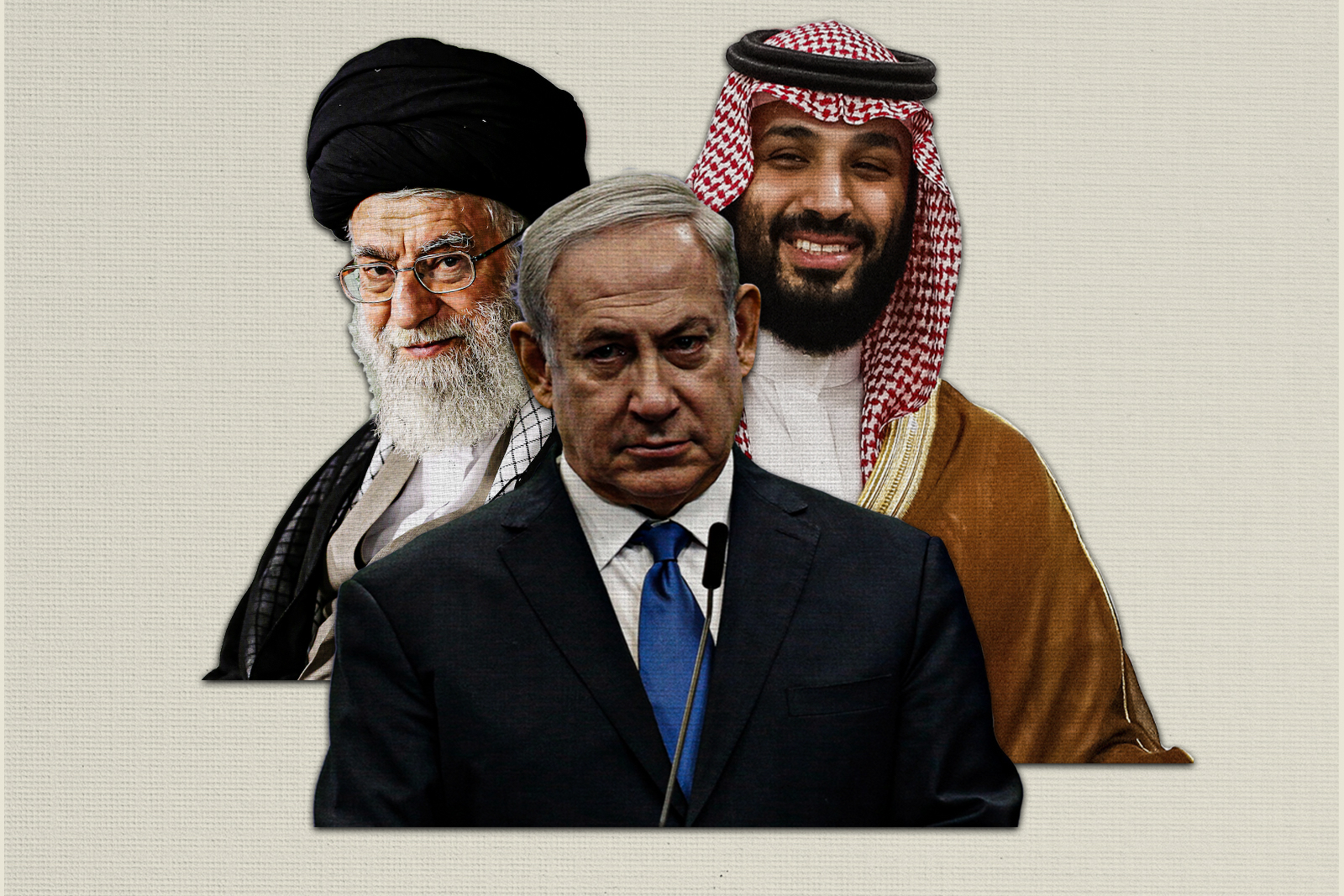







The article discusses a proposed 'Israeli Marshall Plan' to save Israel from potential collapse. The plan involves removing messianics from positions of influence, eliminating Haredi and racist 'anti-education' institutions, and equalizing the rights and obligations of all citizens. The author argues that these measures are necessary to address the current challenges facing Israel. [a79af538]
The article discusses the need for listening and understanding in order to achieve peace in the Israel-Hamas conflict. It highlights the trauma experienced by both Jewish and Palestinian people and the cycle of violence they are trapped in. The author emphasizes the importance of listening to each other's perspectives and dispels misconceptions about antisemitism and criticism of Israel. The article calls for leaders on both sides to negotiate a two-state solution and urges people to seek to repair a broken world by listening to each other. [f4d55b7e]
The article discusses the Israel-Palestine conflict and the possibility of a two-state settlement along the pre-1967 borders. It highlights the near-universal agreement on this solution, which was first proposed in 1976 and has been accepted by the Arab states, the Organization of Islamic States, and relevant non-state actors. The article also mentions the failed negotiations in 2000 and the subsequent intensification of the Israeli occupation in the West Bank and the blockade of Gaza. It criticizes the Israeli settlement expansion and the naval blockade of Gaza, which is seen as an act of war. The article argues that the existing settlements and infrastructure projects in the West Bank make a viable Palestinian state impossible. It criticizes the US government's support for Israel and its failure to take concrete measures to oppose settlement expansion. The article concludes that a just and lasting peace in the Middle East is unlikely without a change in US policy. [ead3a938]
The author proposes that nuclear proliferation could be a pathway to peace in the Middle East. Mohamed Amersi suggests creating a transactional framework based on the four main powers in the region: Turkey, Israel, Saudi Arabia, and Iran. Amersi argues that if the US and the wider Western alliance cannot prioritize the region, these four states could provide leadership. He believes that allowing Saudi Arabia and Iran to join the nuclear club could lead to a viable power-sharing framework and a greater balance of power in the region. Amersi also emphasizes the need to resolve the Israel-Gaza conflict through the immediate implementation of the two-state solution. He suggests starting with the establishment of two states on the boundaries of June 4, 1967, as enshrined in UN resolutions. Amersi sees this as a critical opportunity for Israel to bring peace and security to the region. [224963e6]
The author proposes a bold peace plan for the Middle East, suggesting that the United States should offer a piece of land within its own borders, about equal in size to the current state of Israel, on which it would allow that nation to reconstitute itself as New Israel. The author argues that this would provide Israel with greater security, as it would be geographically embraced by the territory of its best ally. The proposal also addresses a constitutional problem in the United States, as the author argues that providing aid to a country based on religious justifications violates the First Amendment. Additionally, the author suggests that a negotiated departure from the existing Israel could preserve historic sites important to Jewish pilgrims and boost the Palestinian economy through tourism. The proposal aims to create a new homeland for the Jewish people, free from the constant state of war, and to move towards an age where religious wars are a thing of the past. [4c6ac4af]
Helga Zepp-LaRouche discusses the escalating crisis in Southwest Asia and the need for a peaceful resolution. She proposes three solutions: convening a peace conference for Southwest Asia, implementing an economic plan for the region, and implementing UN Resolution 242 for a two-state solution in Palestine. Zepp-LaRouche emphasizes the larger context of the geopolitical confrontation between the West and the emerging new world economic order. She warns of the danger of a world war and calls for unity and diplomatic solutions to prevent further escalation. Zepp-LaRouche also highlights the importance of the Belt and Road Initiative (BRI) in transforming developing countries and creating a new global security and development architecture. She criticizes the Western media's negative portrayal of the BRI and urges the United States and European countries to cooperate with China and Russia. Zepp-LaRouche concludes by encouraging philosophical minds to inspire others and have the courage to speak out against the prevailing mediocrity. [e142d52c]
Lebanon's envoy to India, Dr Rabie Narsh, expressed hope that diplomacy will prevail in the ongoing situation in West Asia. He emphasized the need for a peaceful solution to the conflict and condemned the Israeli occupation of Arab lands. Dr Narsh discussed the concerns of Lebanon and other Arab capitals regarding the escalation of the conflict and the impact it could have on the region. He called for more international pressure on Israel to cease hostilities and emphasized the importance of a two-state solution. Dr Narsh also mentioned the role of Hezbollah in Lebanon and clarified that they do not want escalation on the border. He expressed concern about the safety of UN peacekeepers and Indian peacekeepers in the region. Overall, Dr Narsh emphasized the need for diplomacy to prevail and for a peaceful resolution to the conflict. [71bc9ce4]
This article discusses the ongoing conflict in the Middle East, particularly between Israel and Palestine. It criticizes Israel's actions as ethnic cleansing and calls for international intervention to protect civilians and establish a ceasefire. The article also highlights the importance of economic stability and infrastructure development in the region as a means to promote peace. It suggests that the BRICS nations, along with Southwest Asian and African countries, can play a significant role in resolving the conflict. The article concludes by emphasizing the need for a change in mindset and the pursuit of peace as a viable solution to the crisis. [0850785a]
Renowned scholar Noam Chomsky weighs in on the Israel-Palestine conflict, discussing the possibility of a two-state settlement along the pre-1967 borders. Chomsky highlights the widespread agreement on this solution, which has been accepted by Arab states, the Organization of Islamic States, and relevant non-state actors. He criticizes the Israeli settlement expansion and the naval blockade of Gaza, which he sees as acts of war. Chomsky argues that the existing settlements and infrastructure projects in the West Bank have made a viable Palestinian state impossible. He also criticizes the US government's support for Israel and its failure to take concrete measures to oppose settlement expansion. Chomsky concludes that a just and lasting peace in the Middle East is unlikely without a change in US policy. [ead3a938]